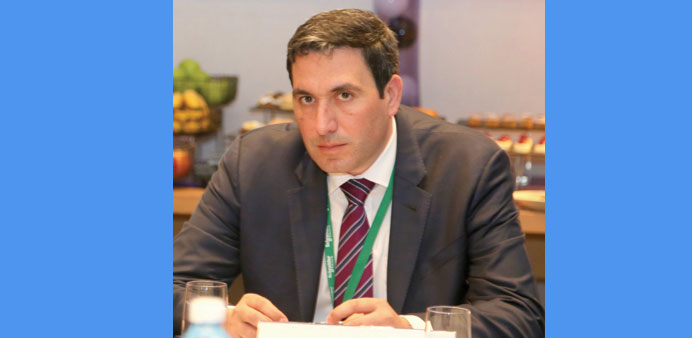By Peter Alagos/Business Reporter
The latest IT tools and the use of predictive analytics or big data plays a significant role in helping authorities make “much-better-informed decisions” in the lifting of the North Field moratorium, an industry expert said.
Schneider Electric’s Ghassan Barghouth, vice-president, Oil & Gas and Industrial Segments Mena, made the statement at a media discussion organised by Gulf Intelligence in Doha yesterday.
Qatar’s moratorium on the new North Field projects is set to expire this year at the same time that Iran’s side of the field (South Pars) could see accelerated development with the expected lifting of sanctions after the nuclear deal.
Asked to compare the tools available today with those used five years ago and their impact on the lifting of the moratorium, Barghouth said, “What is important now is that oil companies are able to do simulations or ‘what if’ scenarios before they spend money.”
“Also, several studies showed that there was a 6% to 8% improvement in productivity because of the use of big data.
“By doing simulations, a company can make much-better-informed decisions that can help decide whether to lift the moratorium or not,” he explained.
According to Gulf Intelligence, “The moratorium on additional gas developments projects at the North Field was instituted 10 years ago to allow time to study field development optimisation through the lens of Information Technology and big data.”
It added, “Qatar’s oil and gas industry’s ability to aggregate data into operational intelligence will determine the outlook for the 10-year moratorium. Big data will play a crucial role in the expansion of field development as it generates information about the present fossil reserves.”
In a report, Barghouth said, “The ability to produce and harvest growing amounts of big data with the intention of finding correlations and trends presents a unique opportunity for companies across the globe to optimise operations.”

Barghouth: Expert views.
